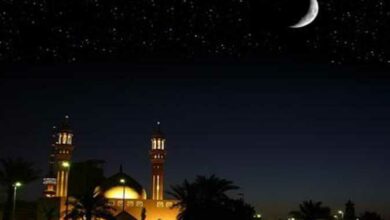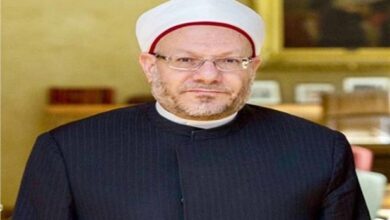President-elect Mohamed Morsy should address the fears of his Coptic “brothers” and their problems on the ground, Grand Mufti Ali Gomaa said Wednesday.
The mufti said Morsy alone would not be able to reform the country or address problems faced by average citizens, and that he needs nationwide support, according to statements published by Dar al-Ifta’s media center on its Facebook page.
Gomaa called on all people and political groups to reach a consensus on the basics of “common, national, Egyptian civilization,” something he said was reached by political and community groups, institutions and the youth of last year’s uprising.
During a meeting with Coptic leaders from the US, the UK and Singapore at Gomaa’s office at Dar al-Ifta — an Islamic education center — Gomaa said that belonging to this country must be translated to actions in the public interest, not for narrow partisan interests.
Bishop Mounir Hanna of the Episcopal Church in Egypt also attended the meeting.
“We shall focus on what unites us rather than what divides us,” Gomaa said, saying the circle of similarities between them is much larger than the circle of differences.
Gomaa called on everyone, especially the media, to refrain from raising issues that are useless to the nation and to immediately begin substantive discussions on ones that are fundamental and help develop society.
“Egypt is full of blessings and experienced [people], which, God willing, will strongly contribute to the reconstruction of Egypt in its new era,” he said.
He warned that many problems and major challenges are still ahead for faithful citizens, requiring cooperation and solidarity to solve.
The mufti said there is a consensus among all sects that citizenship is the standard and primary determination of the relationship between Egyptians.
Morsy — the Muslim Brotherhood leader who on Sunday was announced the winner of a heated election against former Prime Minister Ahmed Shafiq — met Tuesday with Bishop Pachomius, the interim pope of the Coptic Orthodox Church.
The president-elect said at the meeting that all Egyptians have equal shares in the country and that there would be a line open all day and night between him and Christians.
Medhat Kelada, head of a union of Coptic organizations based in Europe, told Al-Masry Al-Youm on Monday that he considered the Copts’ fears of the Brotherhood as “legitimate.”
He said his experience with religious political movements proves they seek exclusionary rule.
“I think promises are not enough,” he said. “The [Hosni] Mubarak regime had present promises only, without carrying out any [of them].”



